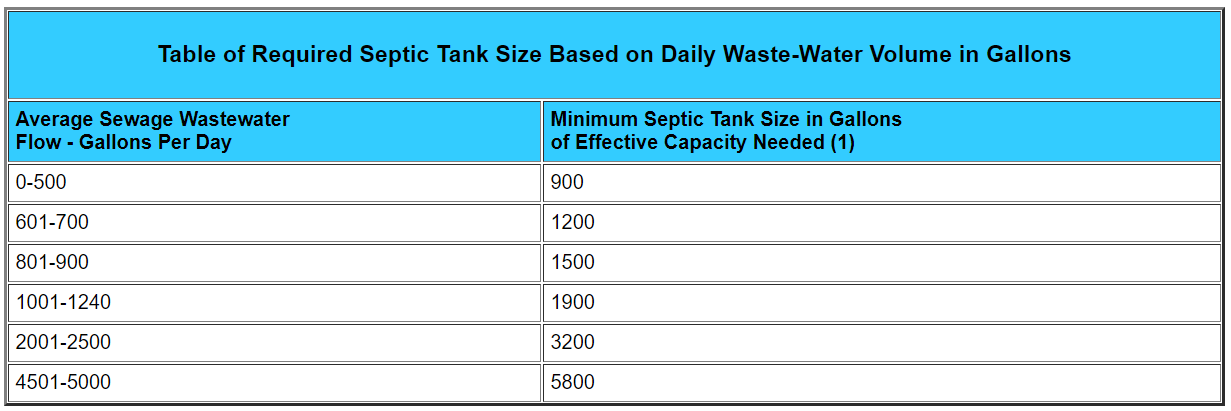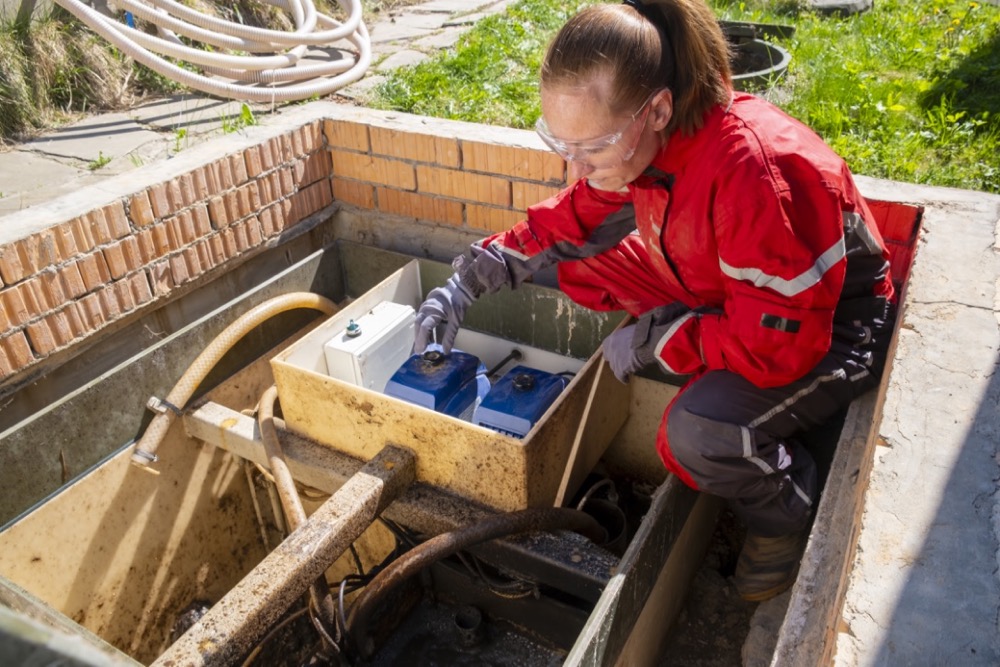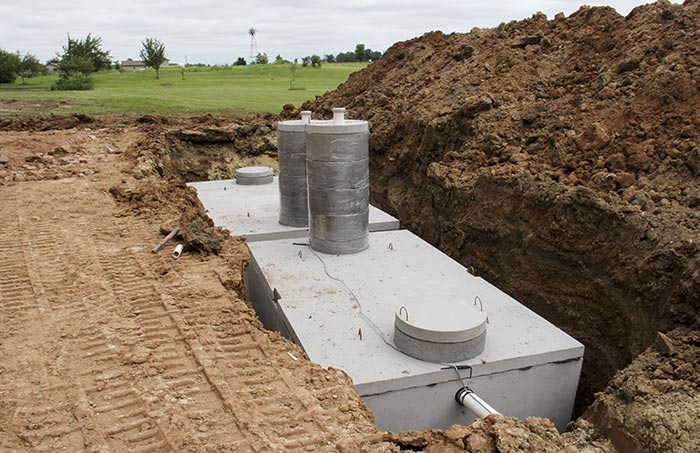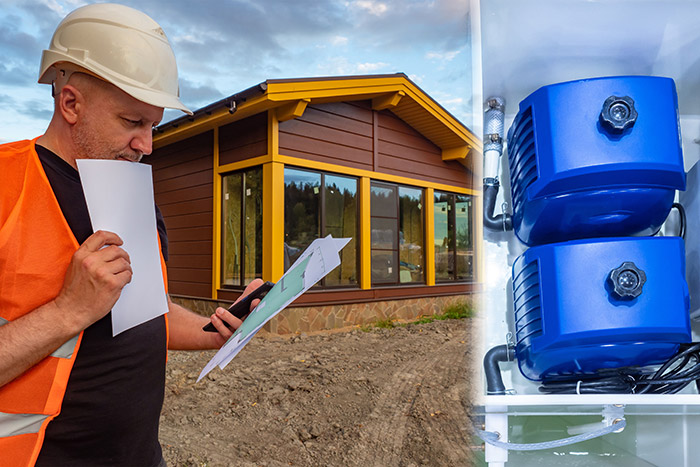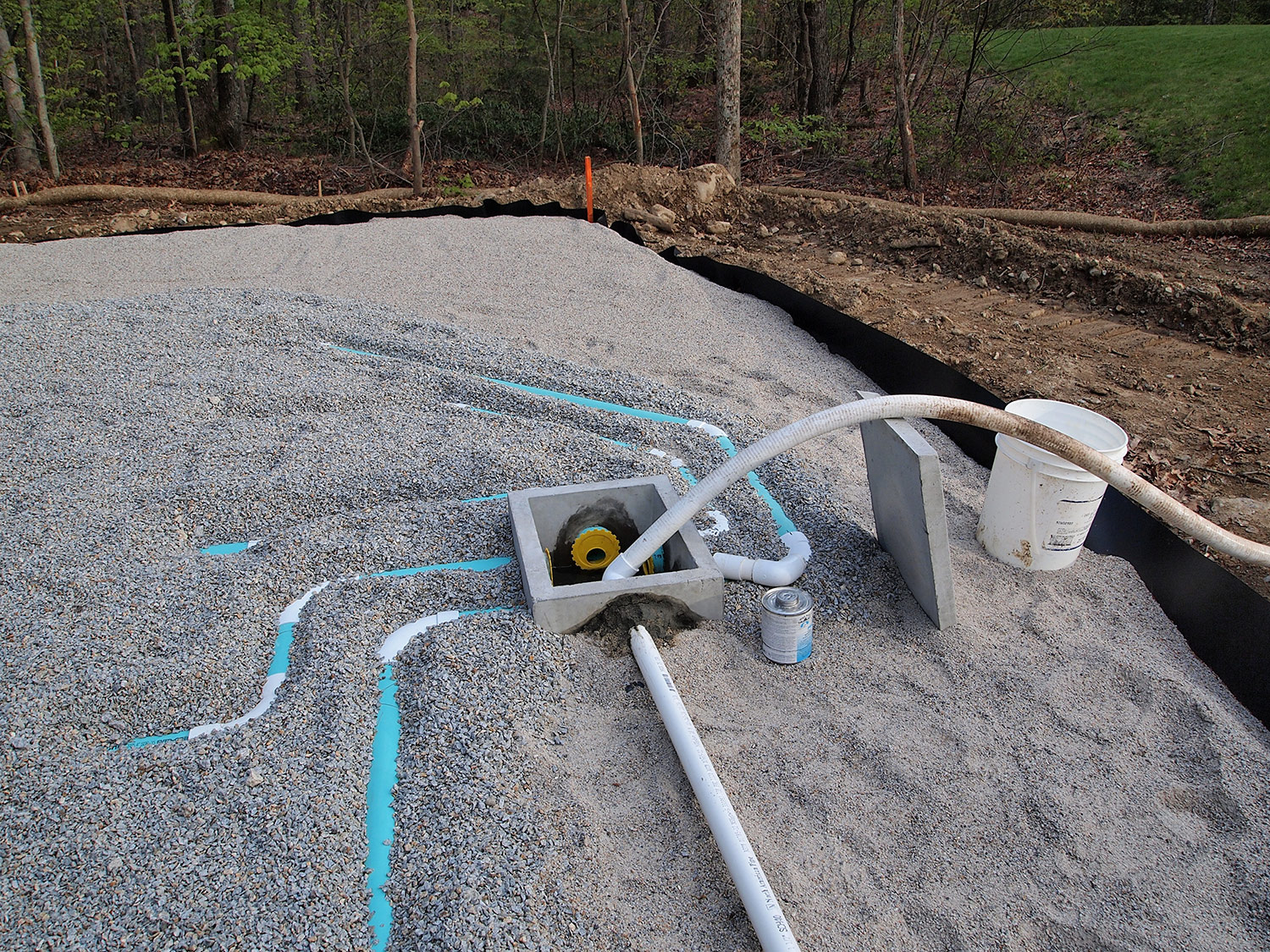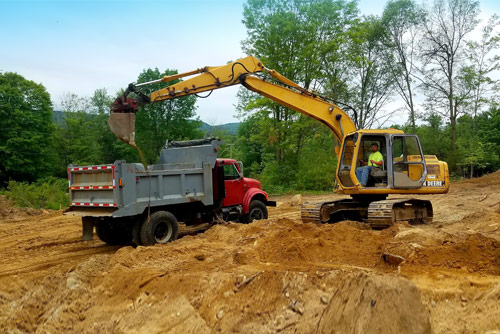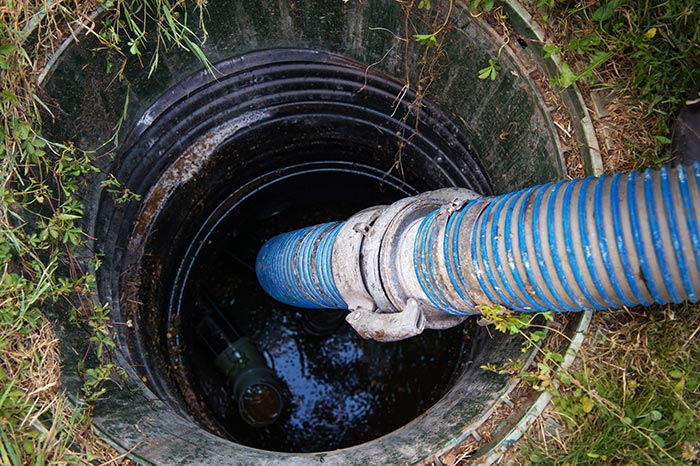
There are several types of septic systems you may consider for your new construction project, each of which could be beneficial in different ways.
Conventional Septic Systems
There are two general styles of conventional septic tanks that are used today, with the older graveled septic system being cheaper but not as preferred as the newer chamber septic system. Conventional septic systems feature a septic tank that is fed by a pipe which connects the building it is being used for. As water fills up inside the septic tank, it will eventually rise to the level of a drainage pipe, which leads out to the drainage field where the water drains into the ground. Septic tanks are intentionally made in large sizes to allow time for the wastewater to separate, creating a layer of sludge on the bottom and a layer of scum that floats on the surface. Both the chamber and graveled system drainfields create porous surfaces that allow the untreated water to sink into the soil, which naturally removes harmful bacteria and viruses.
Low-Pressure Pipe Systems
This solution is often used for situations where the natural terrain and orientation of the building demands that the drainfield be located uphill from the tank, meaning that gravity won’t cooperate when it comes to getting your wastewater to drain in the right place. This system is similar to the conventional septic system design, only there is a second tank added inside the main septic tank. This tank is programmed to pump out the wastewater twice each day, sending the wastewater through the drainfields where it can percolate into the soil.
Evapotranspiration System
In environments where the level of evaporation vastly exceeds the level of precipitation, such as in a semi-arid or arid climate, an evapotranspiration septic system will be a great solution. These types of climates tend to not have sufficient layers of permeable soil to treat the wastewater, so an alternative to the conventional system is needed. An Evapotranspiration septic system features an underground tank with a drainfield that has a trench with an impermeable barrier rather than a porous surface. This trench is topped by mounded sand and plants, which allows the water to evaporate into the air and transpirate into the plants. This process allows the wastewater to be treated through the sand without spilling over onto the dry terrain. An alternate version of this system changes the drainfield by making it permeable, allowing the water to percolate into the soil as well, making it a viable solution for moist climates as well.
When you need septic service, installations, or repairs that you can trust, contact Morse Engineering and Construction.


